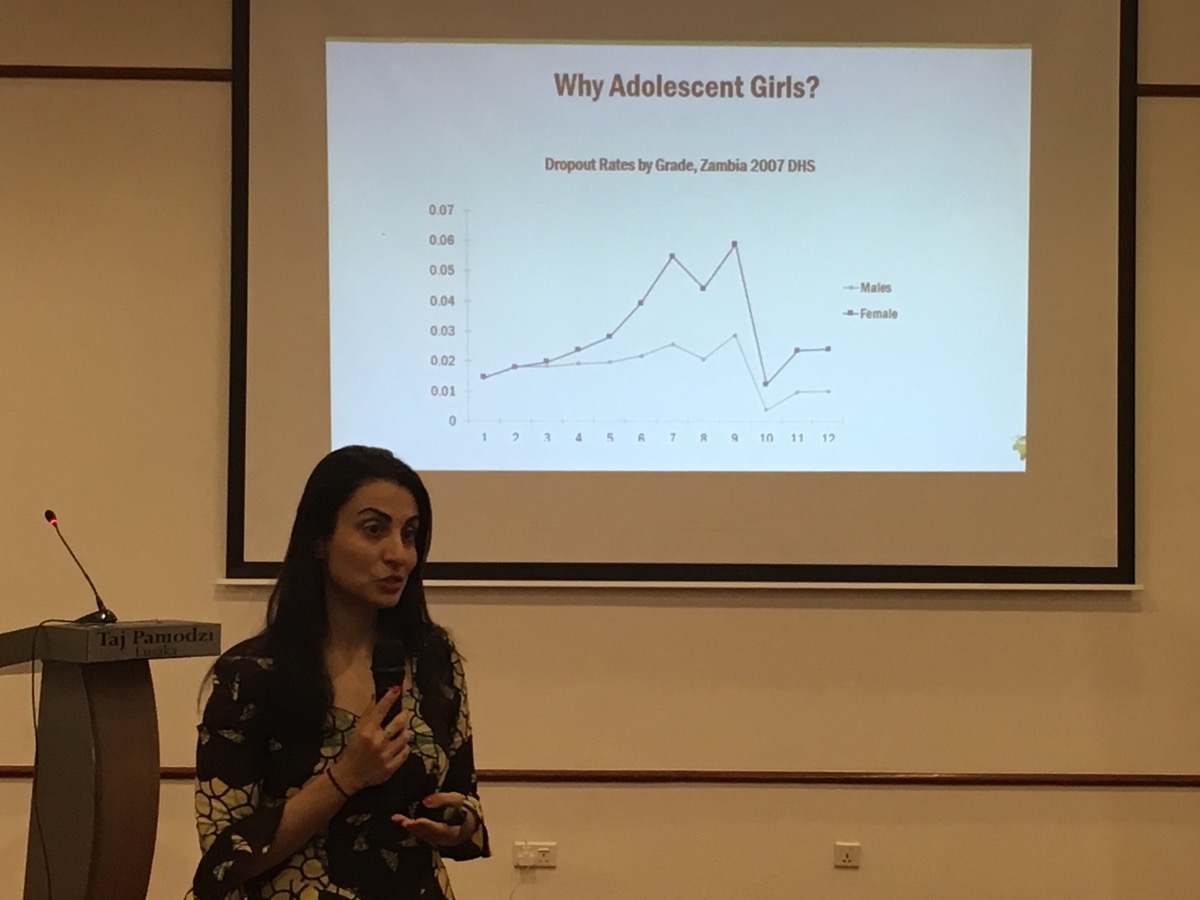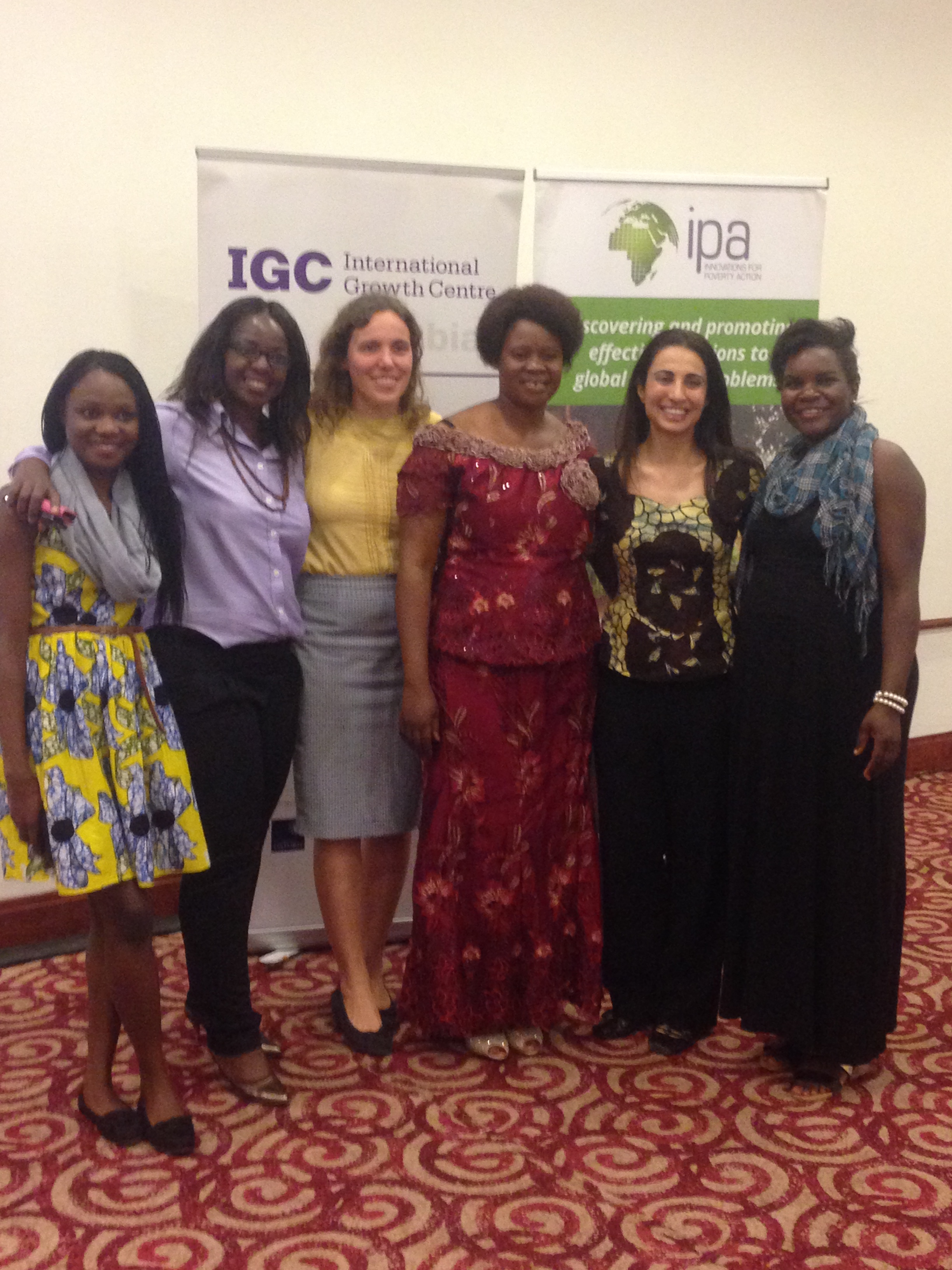IPA Zambia Co-Hosts Event on The Impact of Teaching Girls Negotiation Skills
On March 16, 2017, Innovations for Poverty Action (IPA) and the International Growth Centre (IGC), in collaboration with the Zambian Ministry of General Education (MoGE), hosted a policy dissemination event on research results from the study, “The Impact of Teaching Girls Negotiation Skills in Zambia,” conducted by Prof. Nava Ashraf from the London School of Economics, Natalie Bau from the University of Toronto, Corinne Low from the Wharton School, and Kathleen McGinn from Harvard Business School. The event was attended by 80 stakeholders including representatives from the Ministry of General Education, administrators from treatment schools, negotiation coaches, and members of civil society.
From 2012-2016, the IPA research team led by Prof. Ashraf created and evaluated the impact of a curriculum that taught girls the interpersonal skills needed to negotiate health and educational decisions with authority figures in their lives.
At the event, Prof. Ashraf reported that the negotiation training significantly improved educational outcomes for the average girl. She said this average effect encompasses important differences: girls who were likely on the margin of continuing in school experienced larger educational gains and were also less likely to become pregnant.
The Ministry’s Chief Planning Officer remarked that traditional customs in Zambia have not been conducive to the empowerment of children, particularly girls. There has been no improvement in secondary school dropout rates for either boys or girls, who still lag behind their male counterparts in enrollment rates. The Director of Information and Planning further remarked that the Ministry is committed to evidence-based policy, which is important for development. From the findings of the study, part of the negotiation skills curriculum has been integrated into the curriculum on life skills and sexual health.
The audience then engaged in a vibrant discussion with the panel, highlighting the need for further research on the impact of negotiation training on girls’ post-secondary education and employment outcomes. The Chief Planning Officer stated that the delivery of the negotiation curriculum will be key to its effectiveness and that, given the results, the Ministry needs to take the lead to improve training for teachers in the delivery of its life skills and sexual health curriculum.













